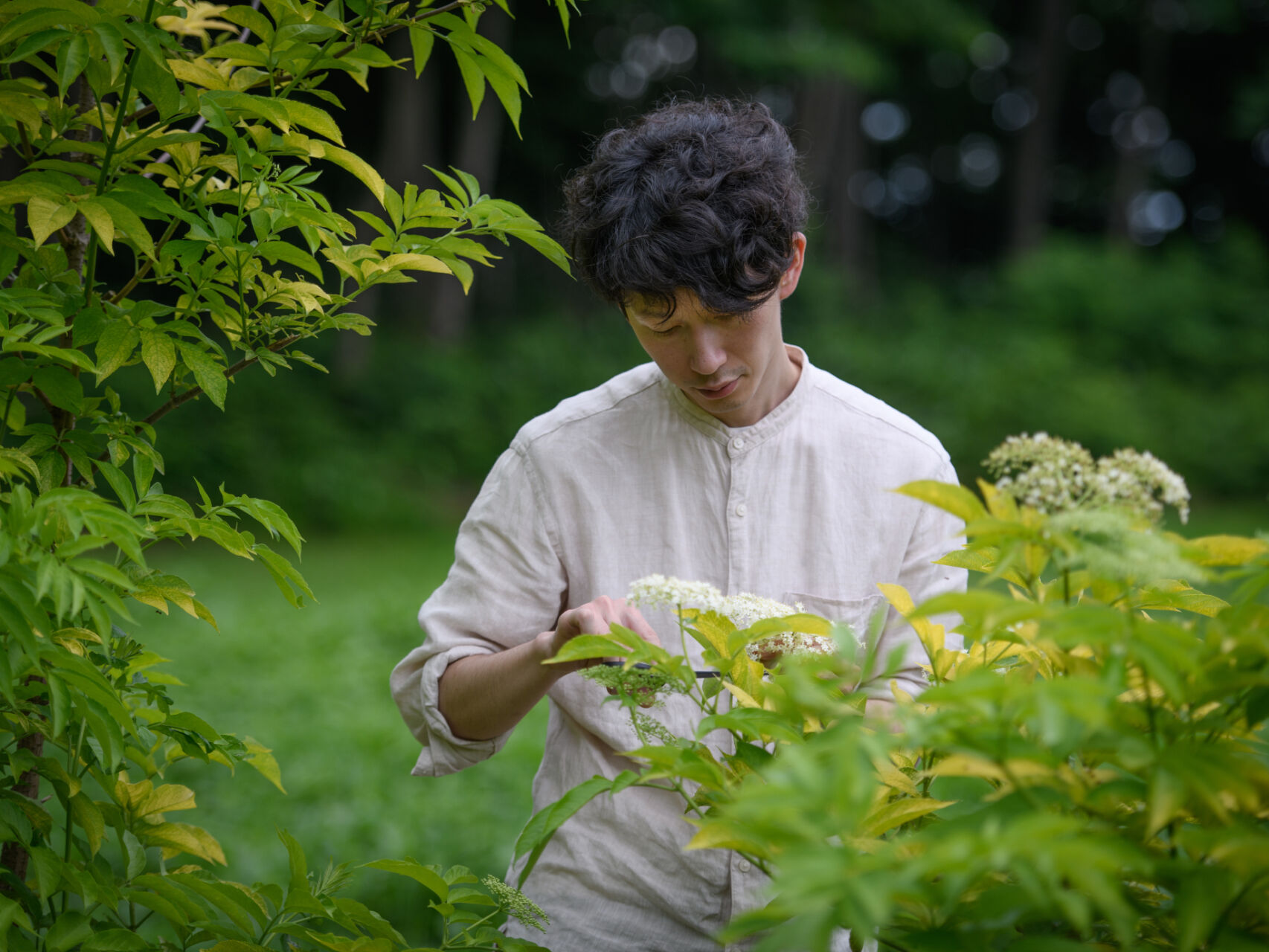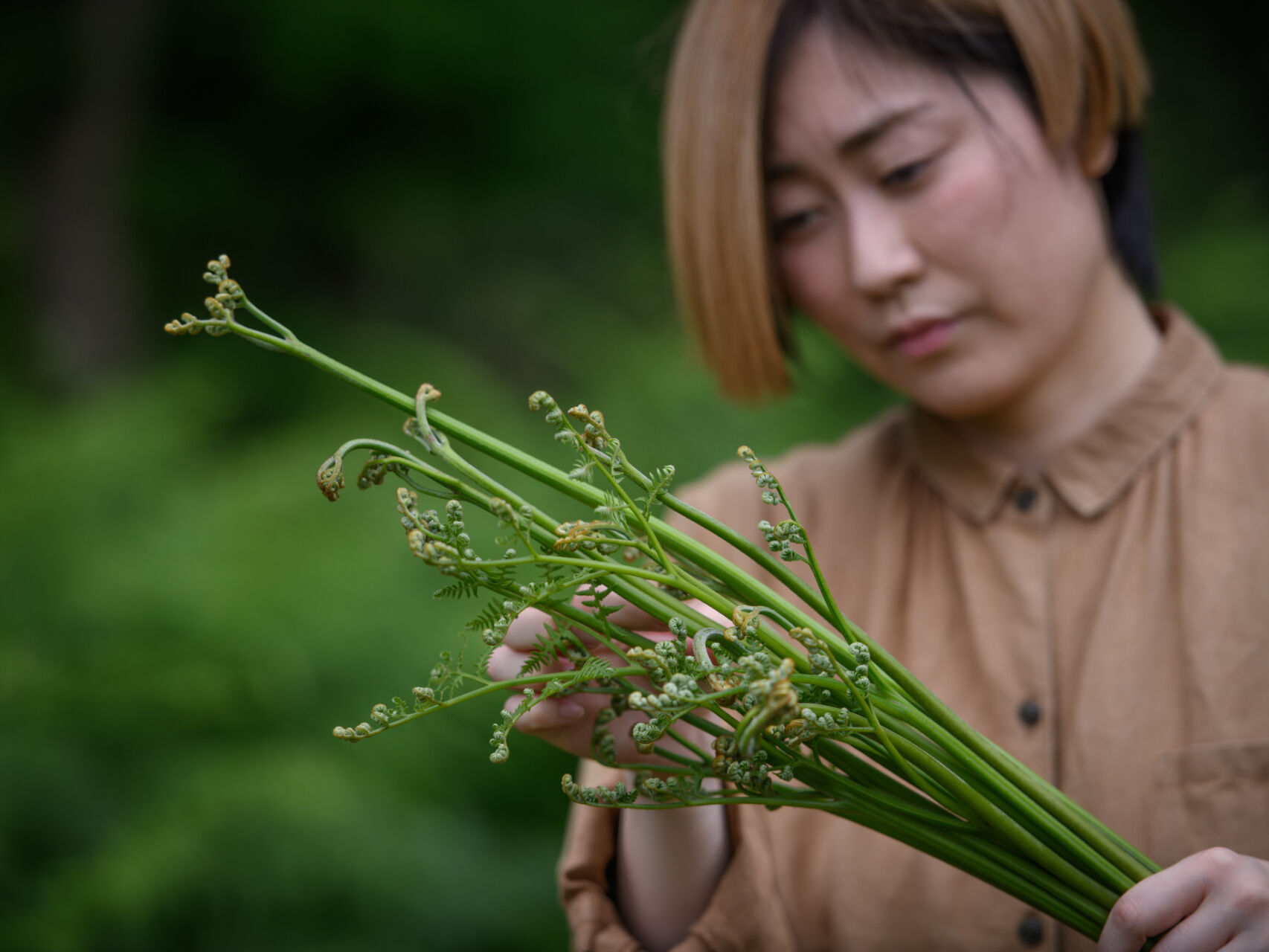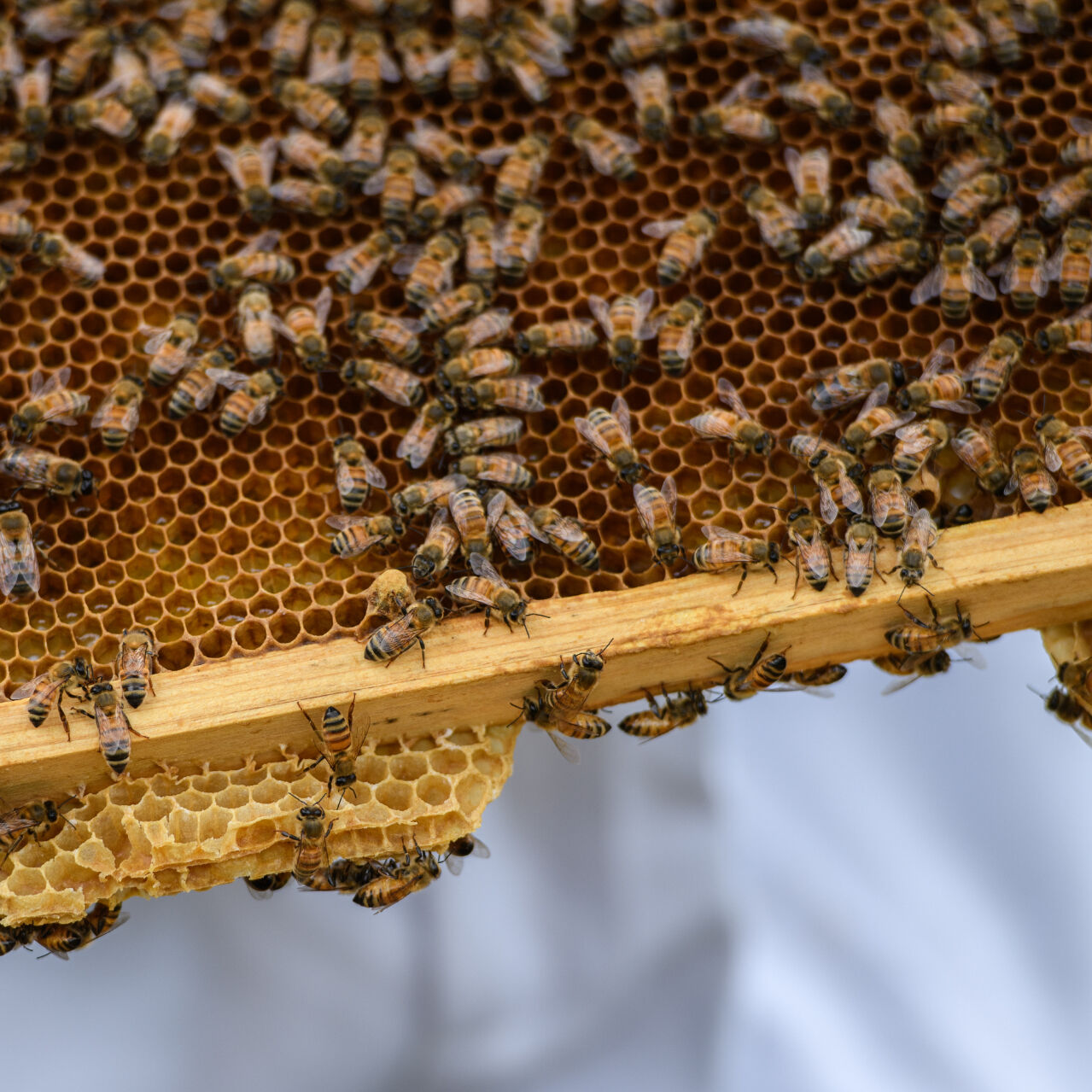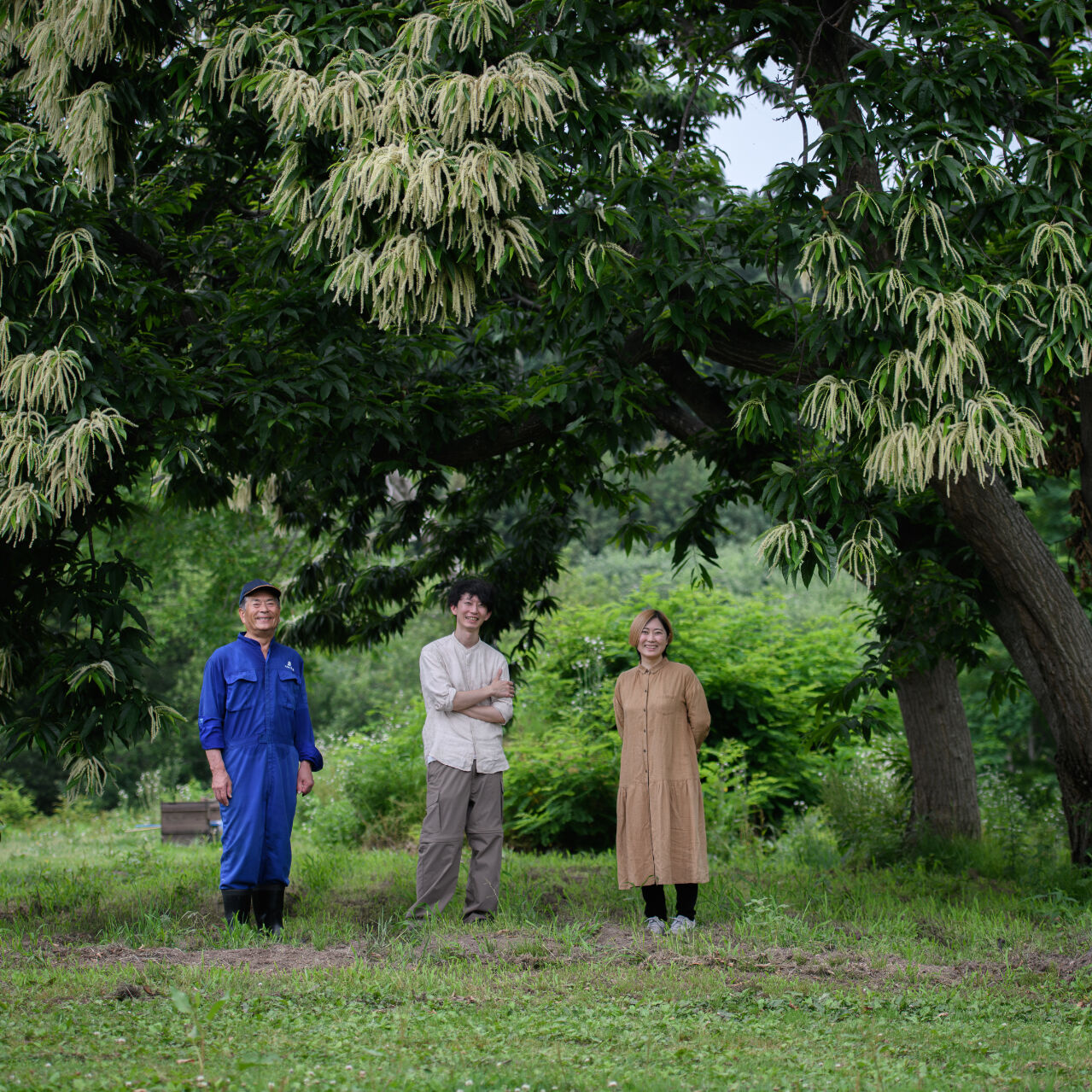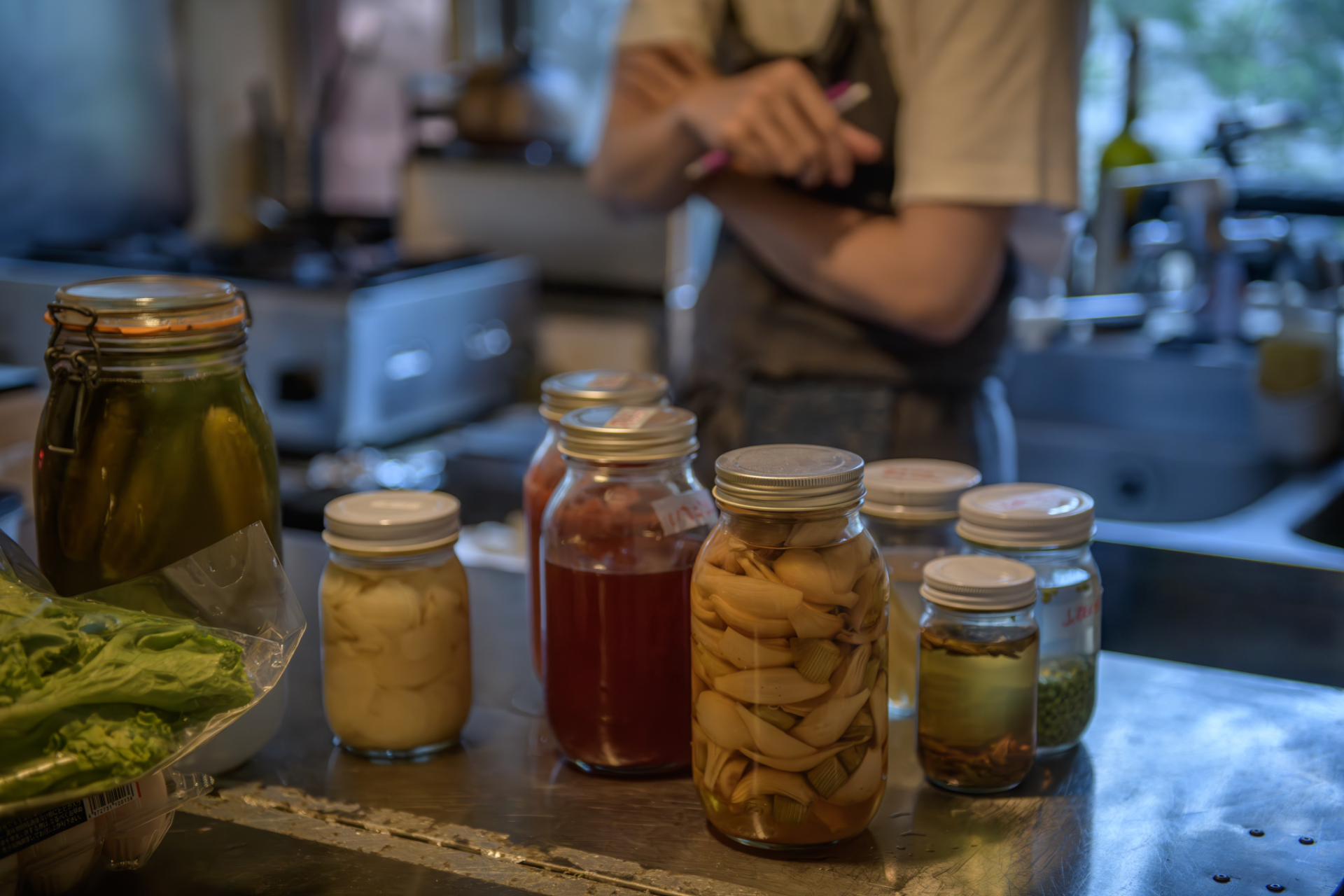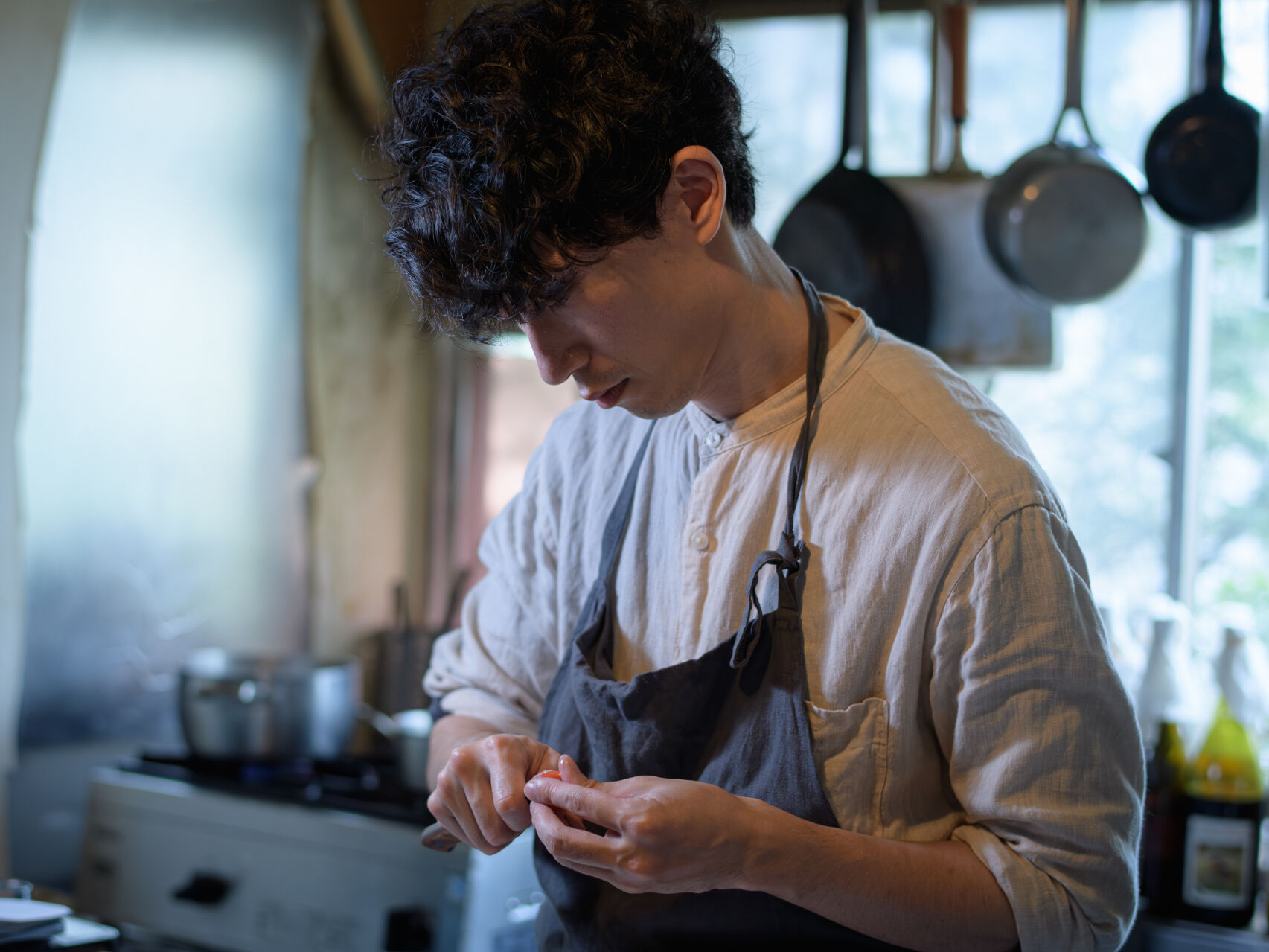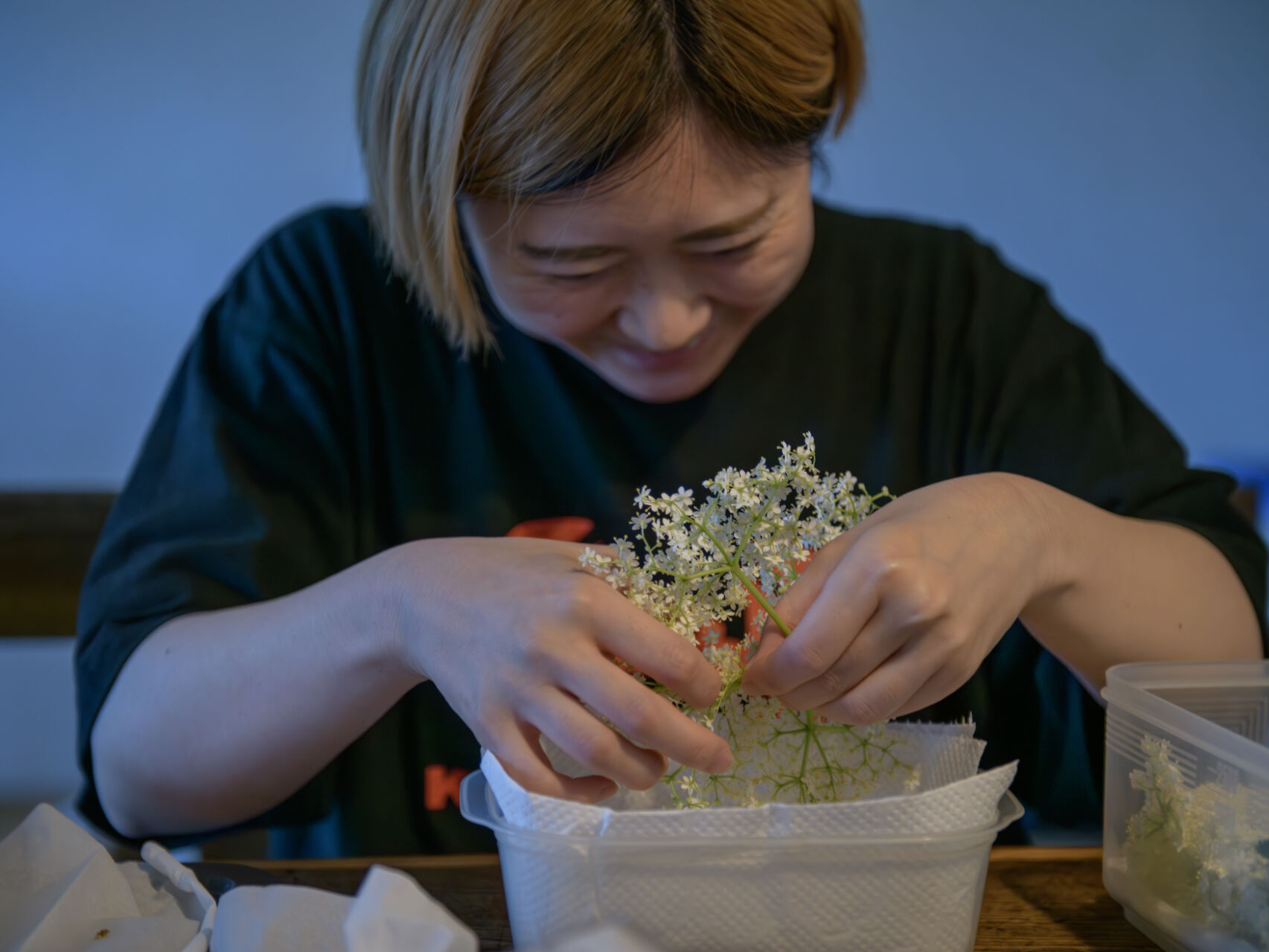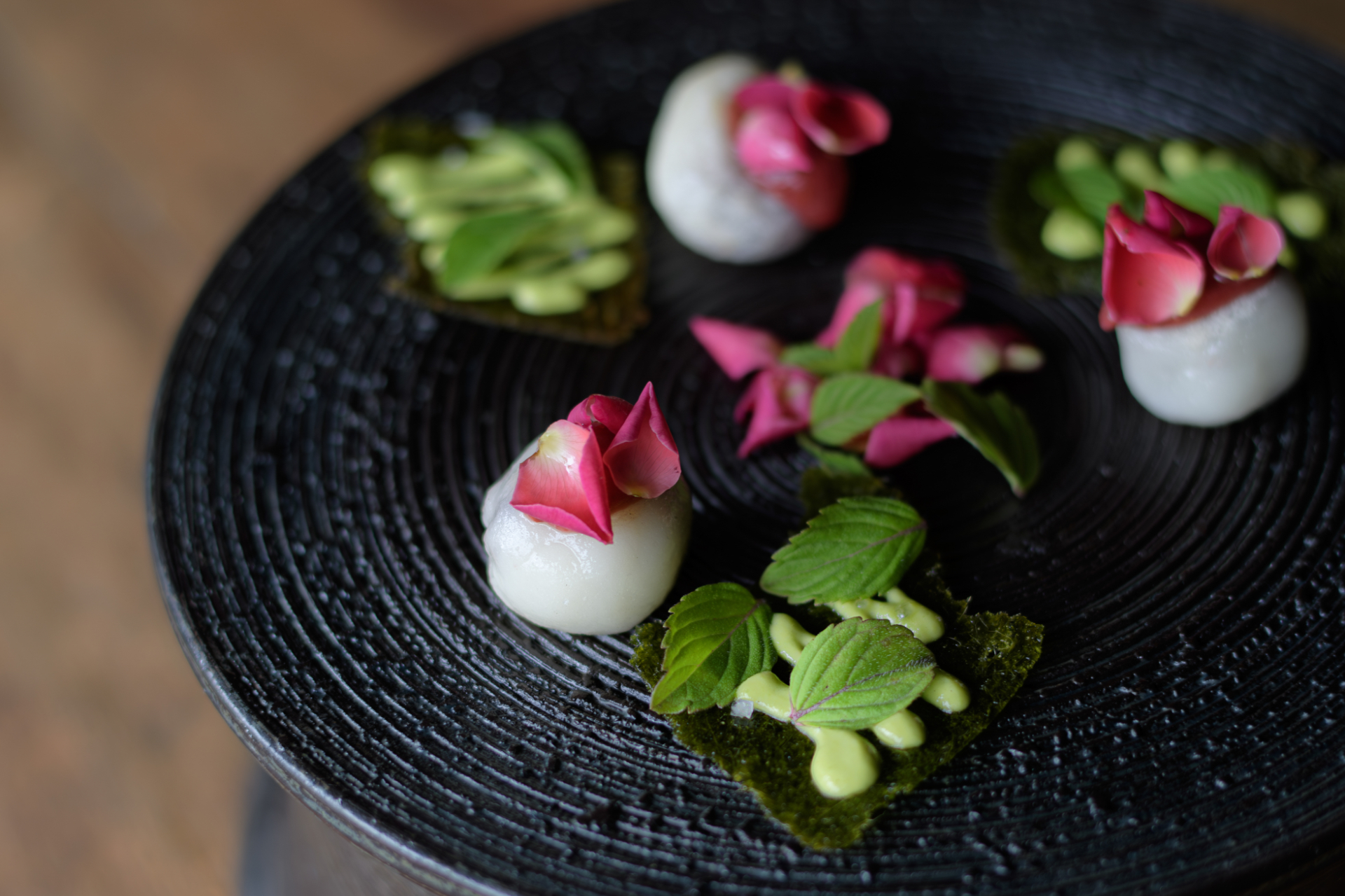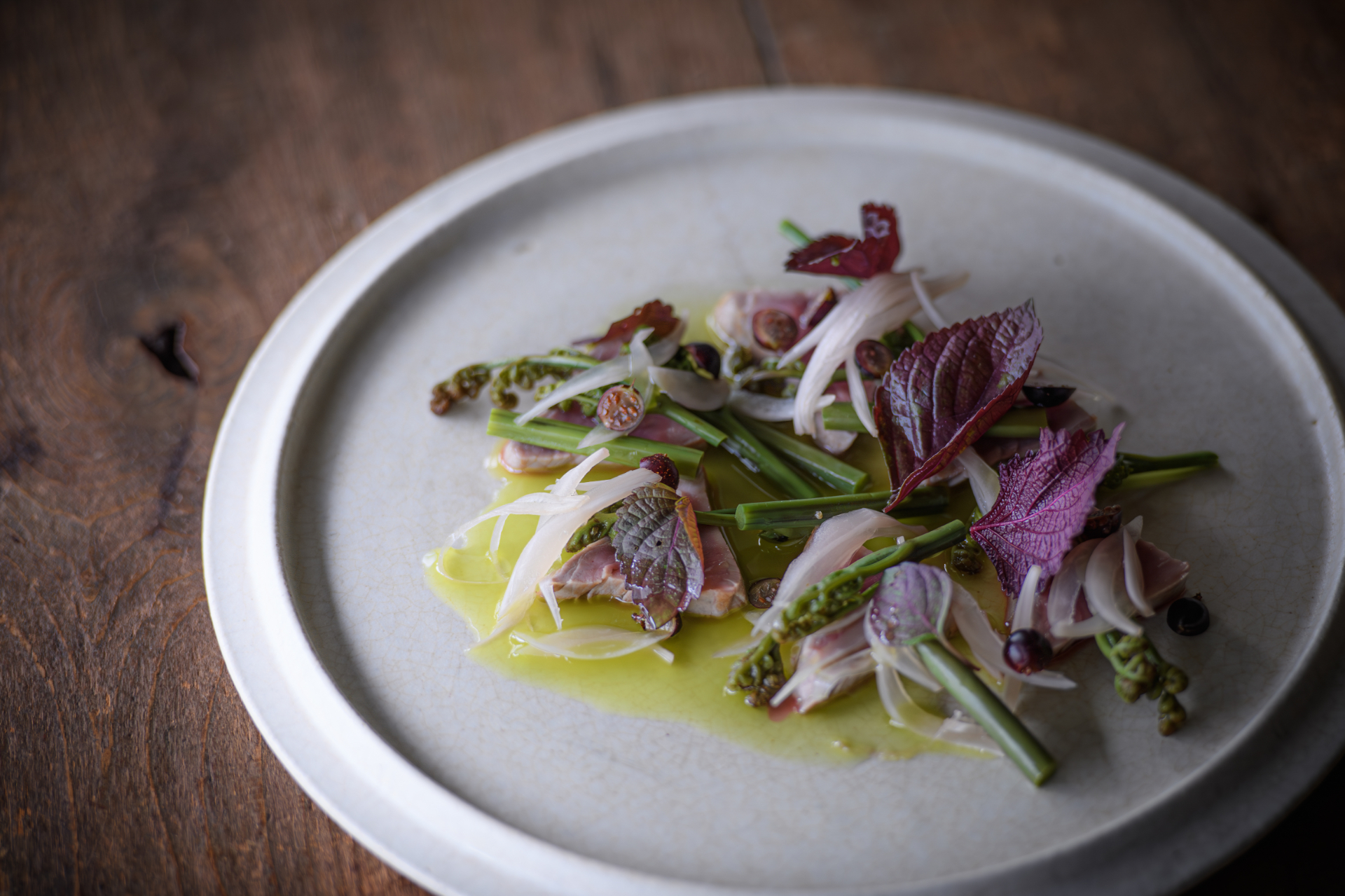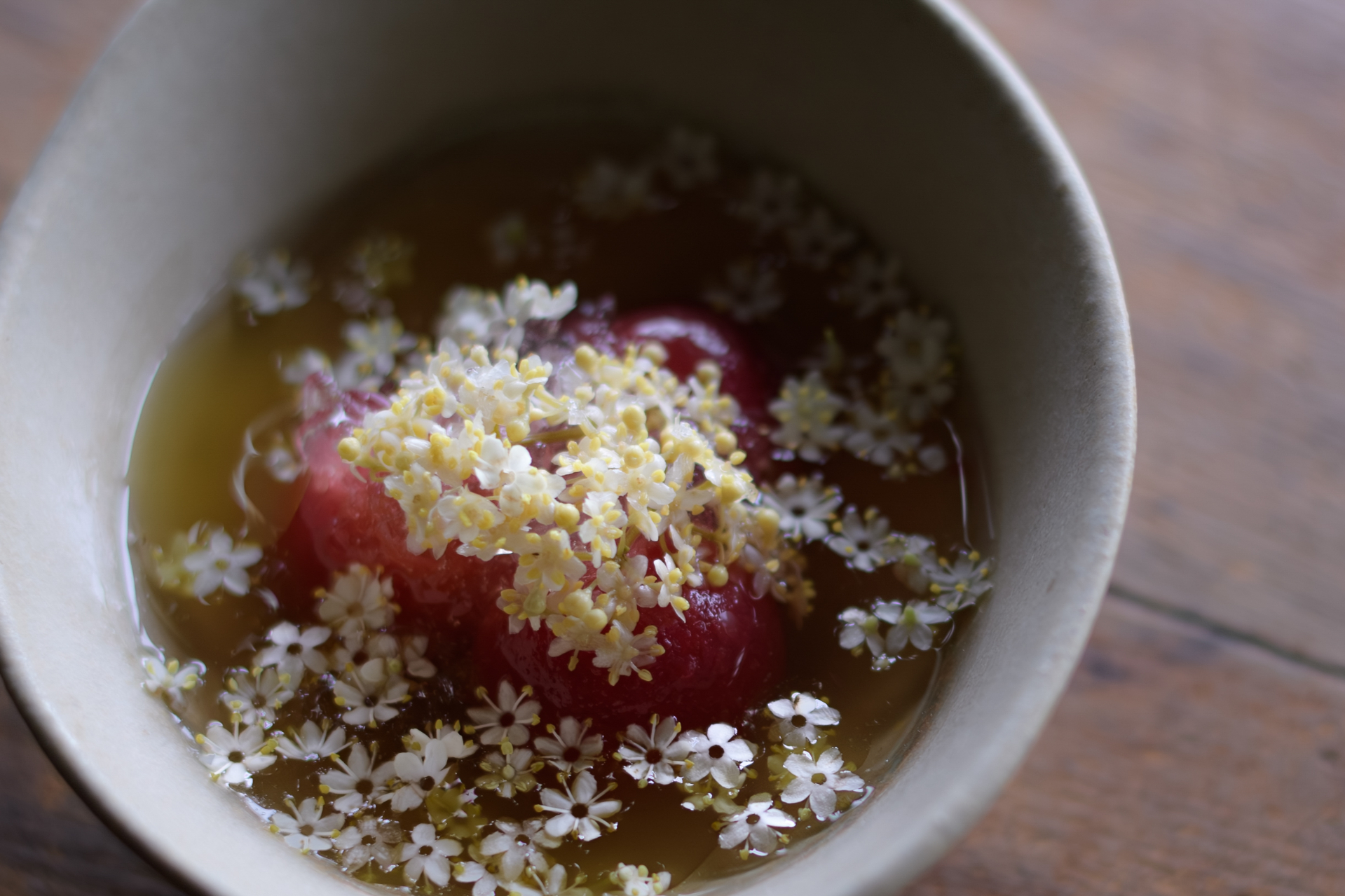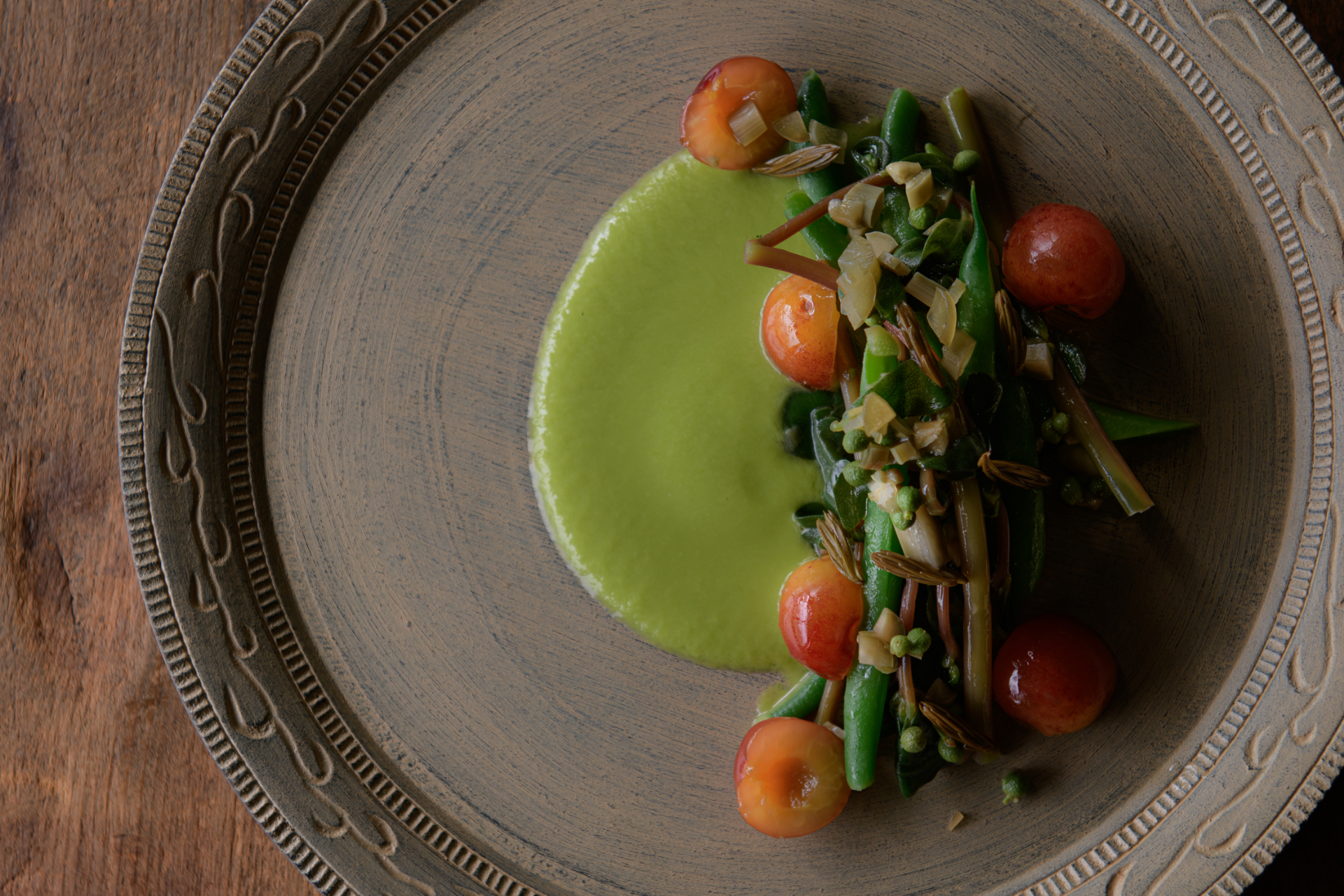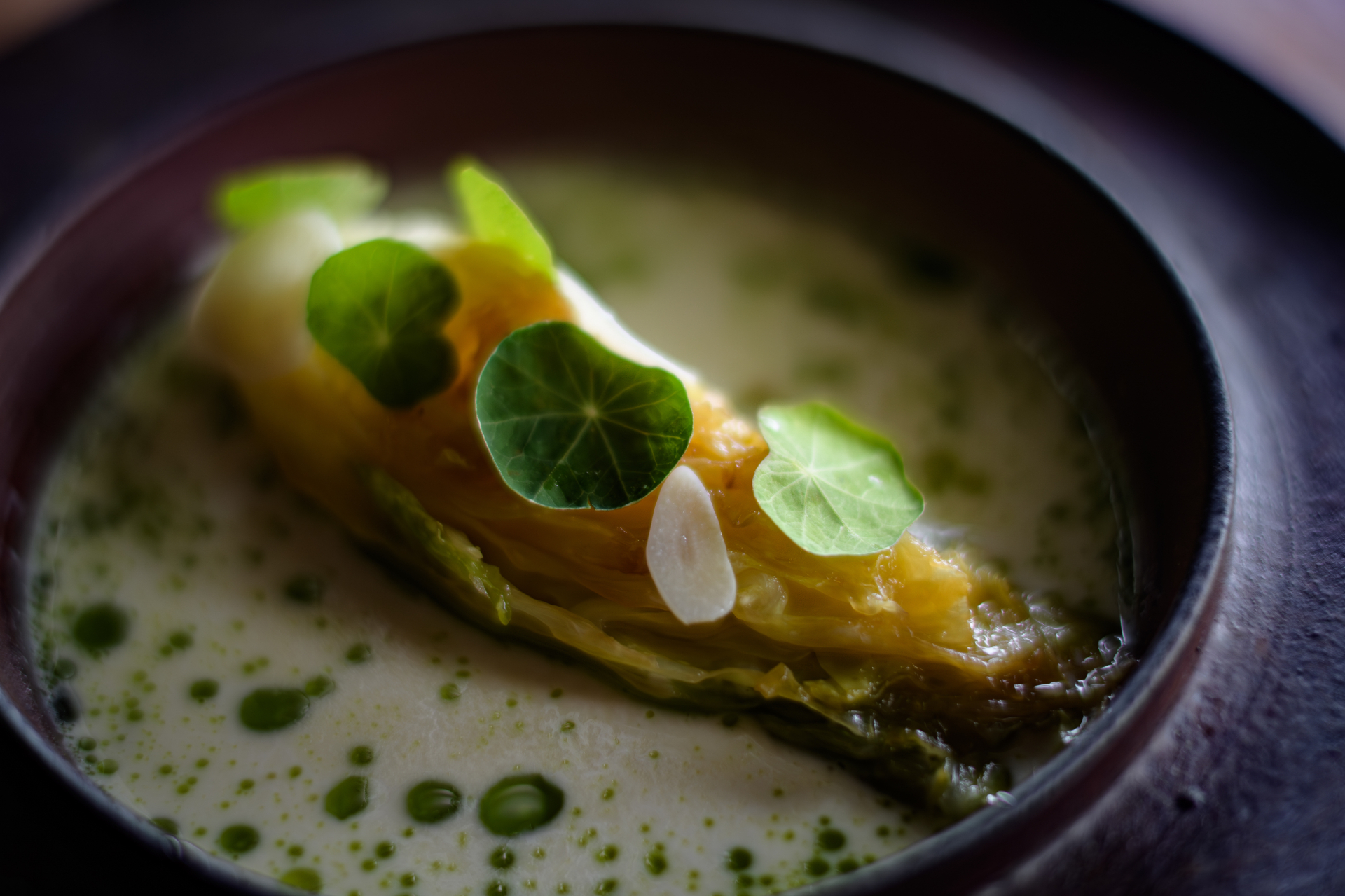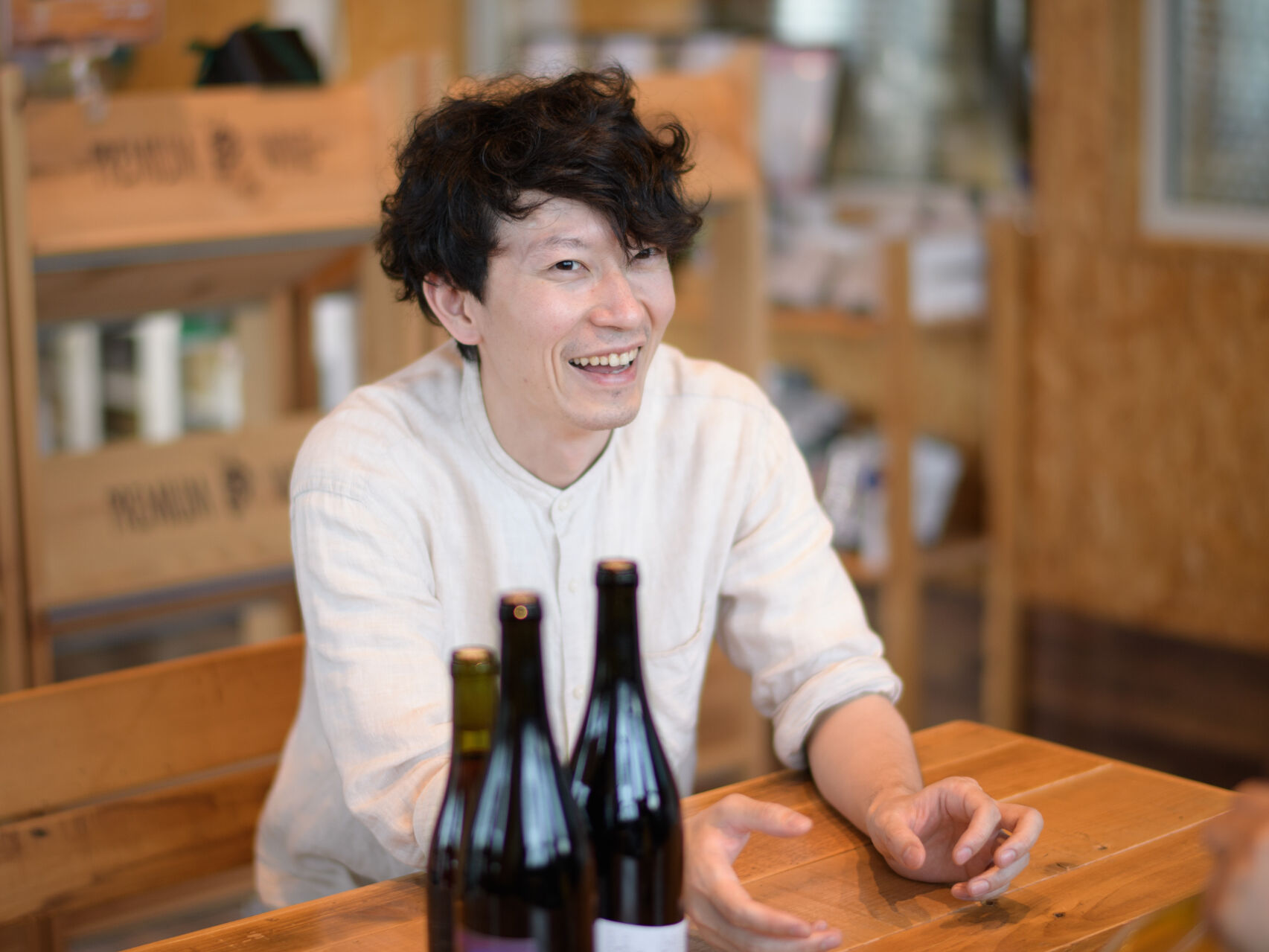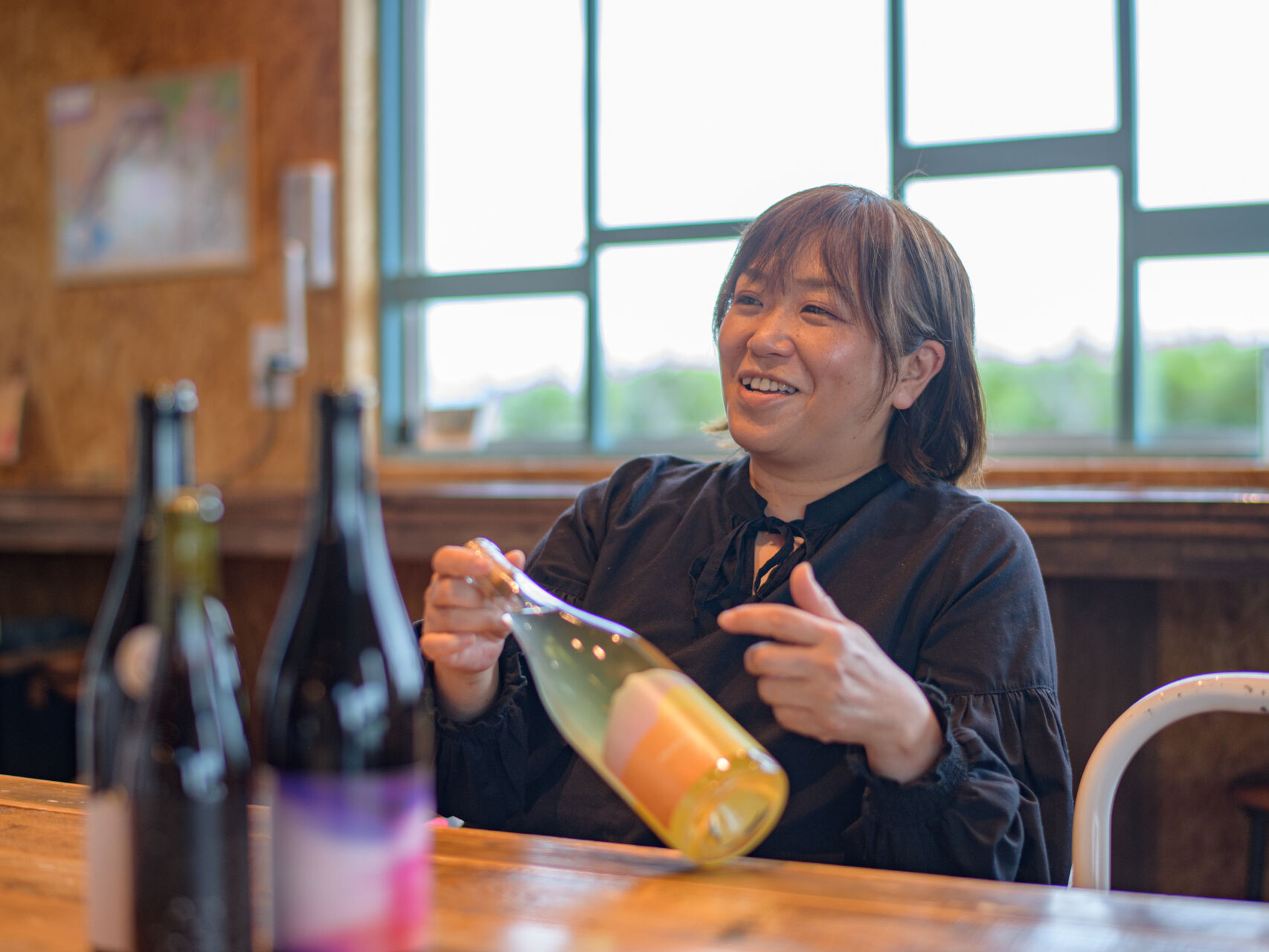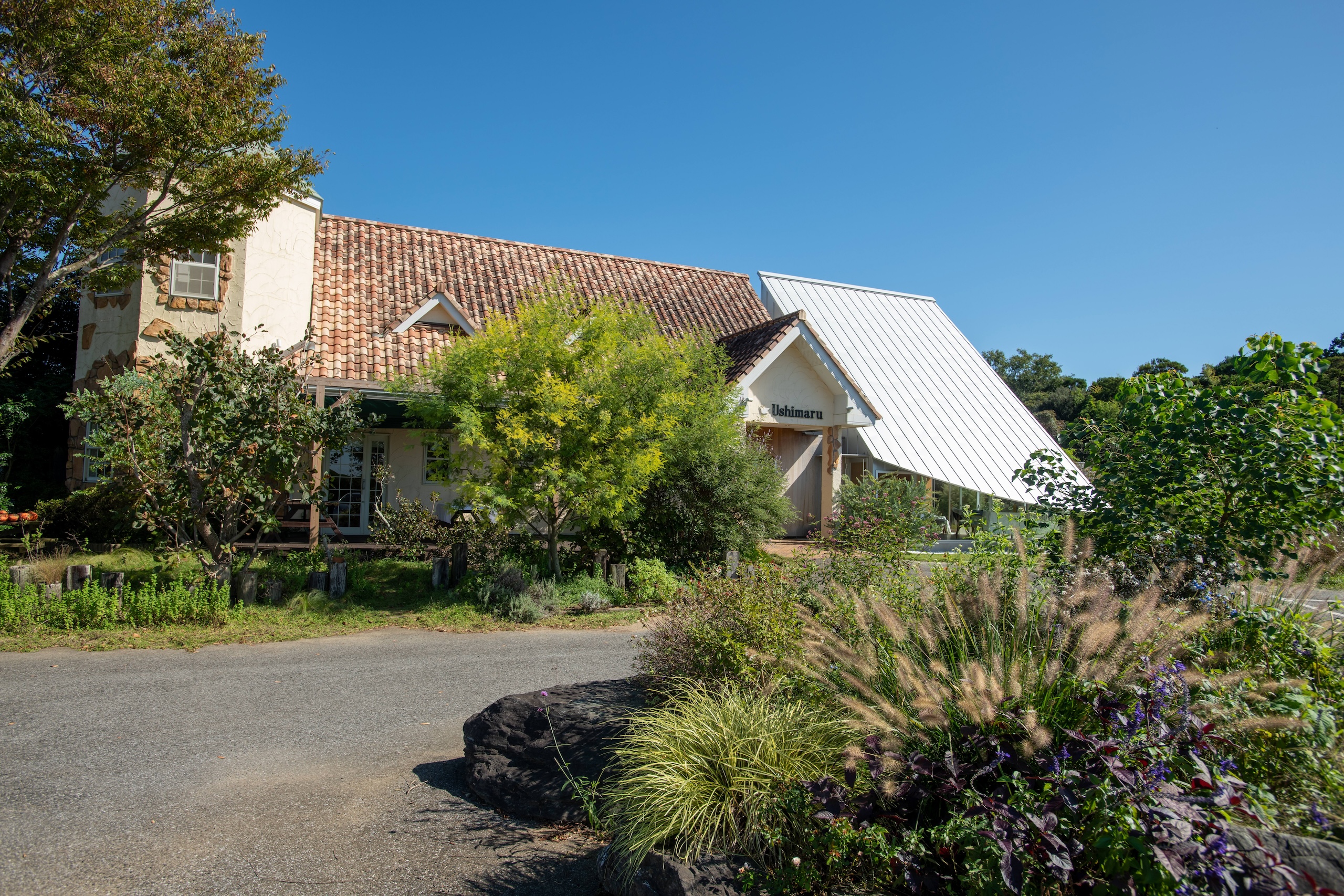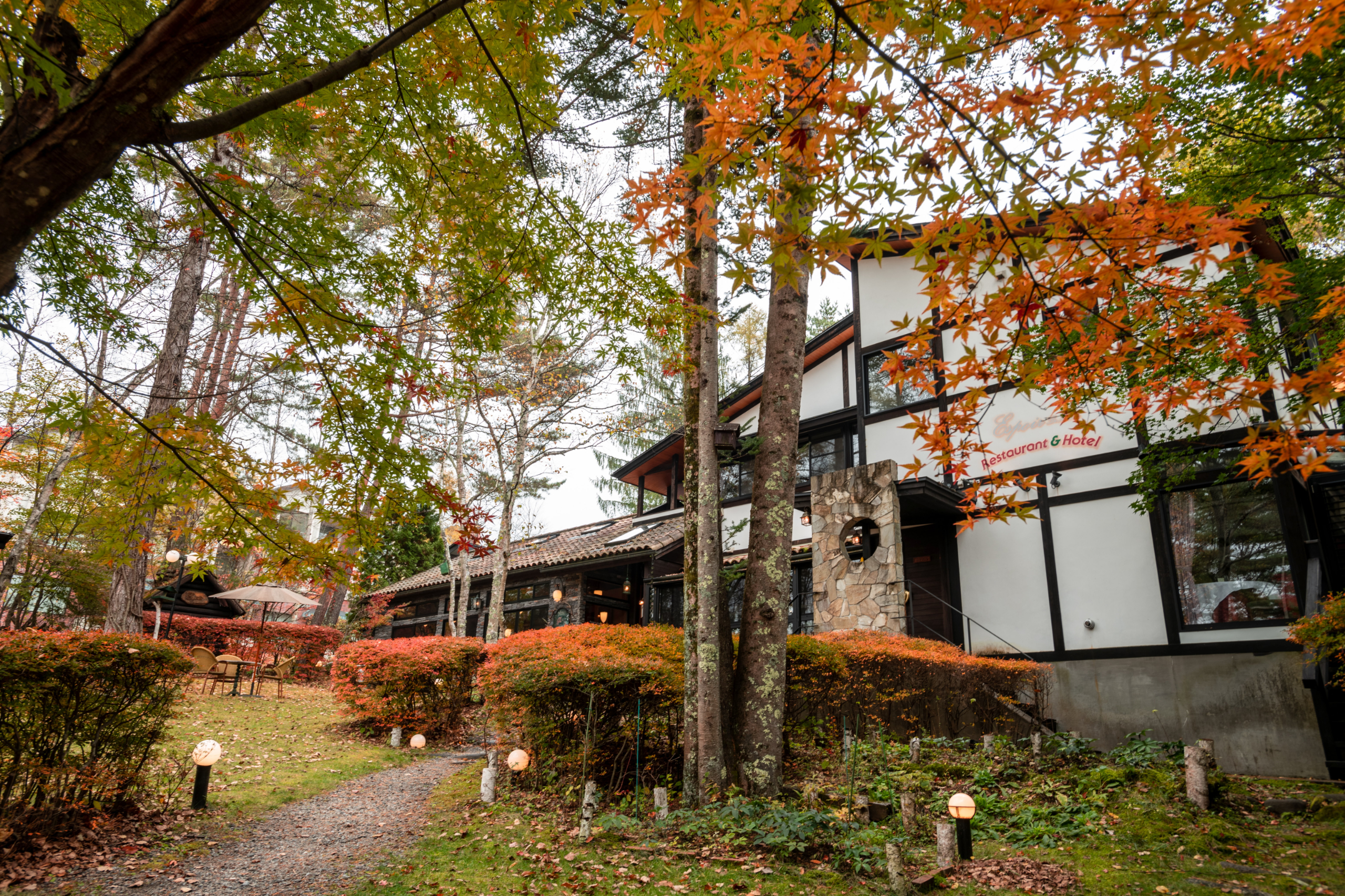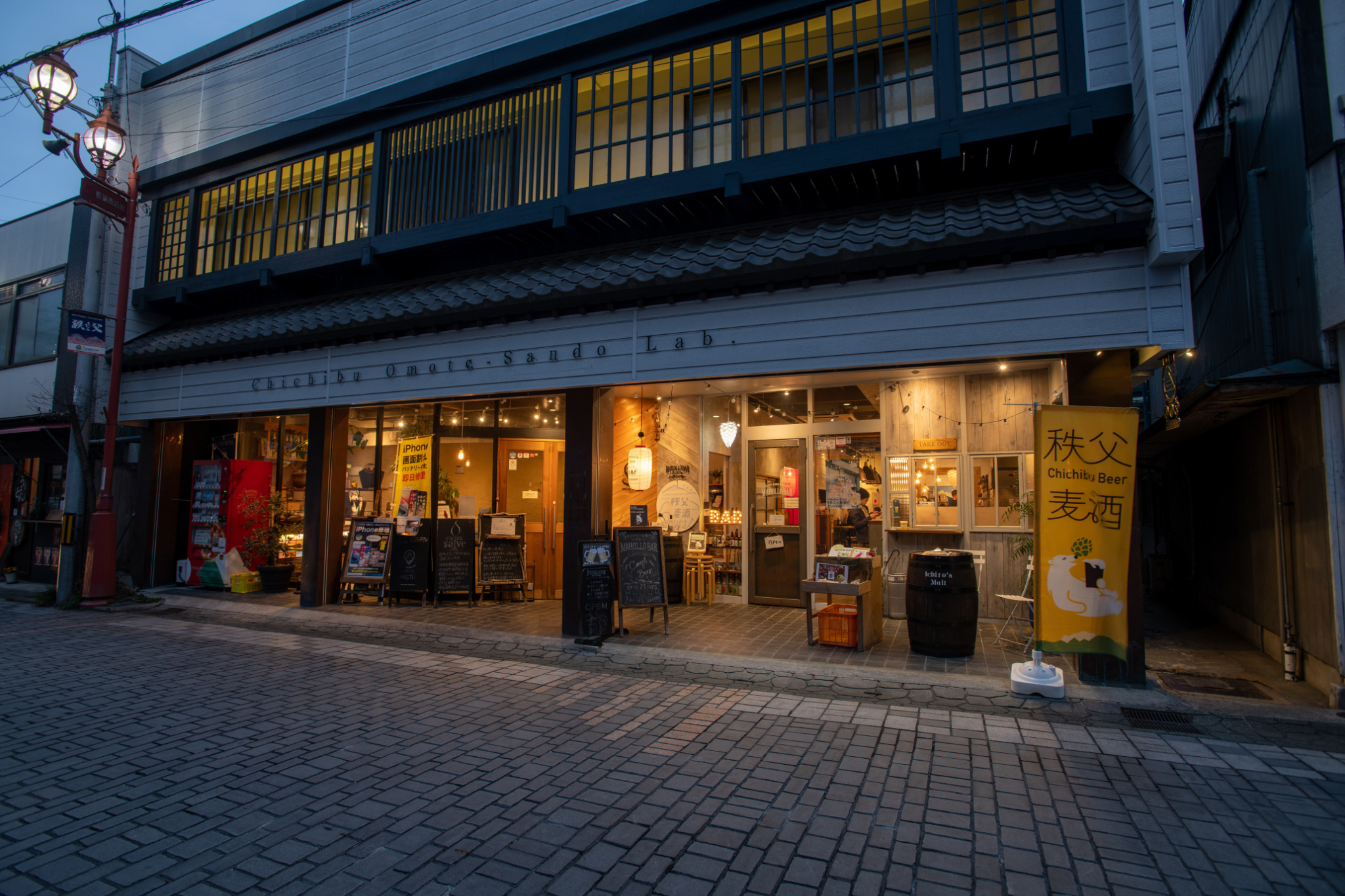In the Tsugaru region of Aomori Prefecture, deep winter brings heavy snow that blankets the land. This harsh climate has given rise to the wisdom and resilience of snow-country living, nurturing a rich local culture. At the same time, the mineral-rich snow nourishes the soil, bringing forth an abundance of blessings.
Amid these shifting seasons, there is a chef who captures fleeting moments of nature’s brilliance and expresses them as cuisine—in his own voice. That chef is Junya Fujita of Oritoha (澱と葉), a tea-centered restaurant offering a single, reservation-only meal per day. The name Oritoha comes from the Japanese words ori (澱, “lees”) and ha (葉, “leaves”), symbolizing what quietly remains at the bottom of wine and tea. It expresses the couple’s philosophy: to be a subtle, essential presence supporting their guests’ experience. Working alongside Fujita is his partner and linen artist, Utako Oka.
Born in Aomori City in 1993 and raised in Hachinohe, Fujita studied culinary arts in high school before working at restaurants in the Kanto region. However, he found it difficult to adapt to the impersonal flow of large kitchens and returned home. In Hachinohe, he trained at a bistro and wine bar, developing his knowledge of wine and tea. In 2017, he and Oka opened Oritoha in her hometown of Tsuruta Town in Kitatsugaru District, serving only one party per day by reservation.
“Just as wine leaves lees at the bottom of the bottle and tea leaves remain in the pot, we want to be the lees and leaves that quietly support our guests’ experience of deliciousness,” the couple says.
What is my cuisine? What does it mean to cook in a way that feels like Aomori? These questions led Fujita into the embrace of Mt. Iwaki and the natural bounty spread out across the Tsugaru plain. Wild herbs and vibrant seasonal vegetables from the foothills now inspire his dishes.
In the fields nearby, Utako’s father, Mamoru Oka (b. 1954), has revived his beekeeping practice. Multifloral honey gathered by the bees from wildflowers and apple blossoms—both specialties of the Tsugaru region—is used in Oritoha’s dishes. When the harvest is plentiful, the honey is bottled and sold to great acclaim. Bees play an essential role in the natural cycle by helping to pollinate plants and fruit trees.
One of Fujita’s strengths is being able to cook ingredients on the same day they are harvested. Peels, stems, and other typically unused parts are fermented or dried. Even scraps whose purpose is unclear are stored—they may become delicious later or spark inspiration when least expected. His approach is rooted in the belief that ”Everything has value, even parts that are often overlooked”—a philosophy he believes extends to human society as well.
Each meal begins with three cups of tea. This ritual encourages guests to slow down and shift their focus inward, preparing the senses to truly engage with the food. The experience gradually evolves from “chef and guest” to “you and me,” transforming the atmosphere through time and shared presence. Fujita’s vision is to create a singular, unified expression—an immersive space woven through tea and cuisine.
No course would be complete without wine. Fujita, ever in pursuit of Tsugaru’s terroir, has found kindred spirits in the team at Tsugaru Winery. For over fifty years, the region has cultivated Steuben grapes—a variety from New York State—with the highest yield in Japan. The winery, founded in 2017, was taken over in 2023 by a new generation of winemakers and sommeliers with experience both in Japan and abroad. In addition to traditional winemaking, they are exploring a new frontier of “craft wine,” incorporating local apples, peaches, and even aging in sherry casks.
On this day, Fujita had the pleasure of a rich exchange with Taiko Nameki, a sommelière at Tsugaru Winery, about the harmony between Mr. Fujita’s culinary creations and the winery’s wines—an elegant marriage of flavors.
“Just as we receive so much from nature, I hope that the dishes we create here become something our guests carry with them—something that gives in return,” says Fujita.
The story on the plate—rooted in this land, and shaped by Fujita and Oka’s own sensibilities—is now beginning to unfold on an even greater scale.
Oritoha
Address: 10-6 Tsuruta-Maeda, Tsuruta Town, Kitatsugaru District, Aomori Prefecture, Japan
For inquiries and reservations: oritoha.siki@gmail.com or https://www.instagram.com/oritoha/
Tsugaru Winery
Address: 335-1 Tsuruta-Koizumi, Tsuruta Town, Kitatsugaru District, Aomori Prefecture, 038-3503 Japan
Phone: +81-173-23-5703
URL: https://www.tsugaru-winery.com
Text / Shunji Miyagawa
Photography / Takashi Saito
Translation / Yumiko Sushitani
Related Posts
2024-11-22
A Miraculous Italian Restaurant on the Boso Peninsula
Upon arrival, guests are warmly welcomed by the smiling faces of…
2025-01-15
The Epicenter of Gibier Cuisine: An Auberge Nurtured by Family Love and Community
Along the enchanting "Märchen Road," just off the Suwa-Minami Interchange of…
2025-04-12
A Natural Restaurant in a Retro Town
Vegetables bursting with flavor. The signature dish of Chef Hiroshi Tsubouchi…


